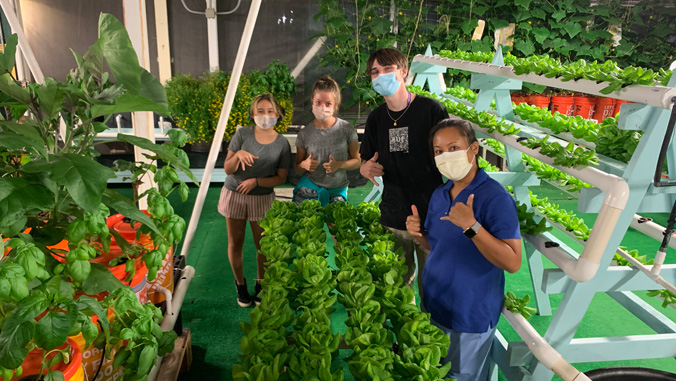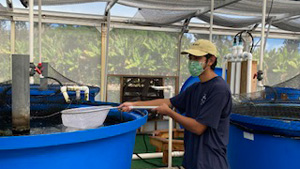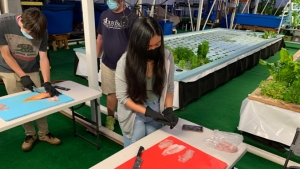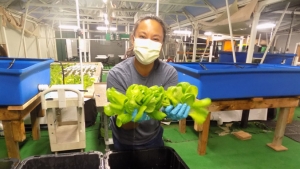
Aquaponics training at the University of Hawaiʻi Maui College has received $500,000 from the U.S. Department of Agriculture’s National Institute of Food and Agriculture (NIFA). It is one of eight grants totalling $3.9 million for rural economic development projects and is part of NIFA’s Agriculture and Food Research Initiative.

“This project will address key community training needs relevant for local agriculture,” said Chancellor Lui Hokoana, one of the principal investigators. “The potential impacts of the project include advancing knowledge in the application of precision agriculture technologies in aquaponics production systems and developing sustainable food systems in Hawaiʻi for food security and community resiliency.”
The Adapting Precision Farming Technologies for Sustainable Aquaponics Systems in Hawaiʻi project will be conducted at the campus’ WaiPono Farm aquaponics and hydroponics greenhouse. The project focuses on the priority area of agriculture systems and technology by expanding workforce training using precision agriculture technologies in aquaponics systems.

This project proposes to create a new program to enhance the college’s agricultural workforce training with a goal of training participants aged 16+ in Hawaiʻi. It includes a 16-week apprenticeship-based workforce training program involving 80 hours of paid work-based learning at the WaiPono Farm site, culminating in the award of the Sustainable Aquaponics System Certificate of Professional Development and Aquaponics Apprenticeship Certificate of Professional Development.
The project also aims to assess the effectiveness of integrating locally sourced fish feed and nutritious native plants through student-led projects that integrate remote monitoring devices and data analysis, and increase the number of students pursuing college and career pathways in agriculture, with a minimum of 70% continuing education and/or employment in agriculture-related fields.

The Sustainable Living Institute of Maui launched the WaiPono Farm in 2016 to develop, model and promote innovative, sustainable food systems methods and practices in controlled environment greenhouses in urban and rural settings using aquaponics and hydroponics growing technologies, capacity building frameworks and education programs to support food security, economic development through food innovation and regenerative agriculture.
Hokoana concluded, “In the wake of the global pandemic and its negative impact on the workforce in Hawaiʻi, learning precision farming skills and technology in the applied environment of aquaponics systems holds the potential to support effective, efficient and productive agricultural systems for new and established farmers.”

